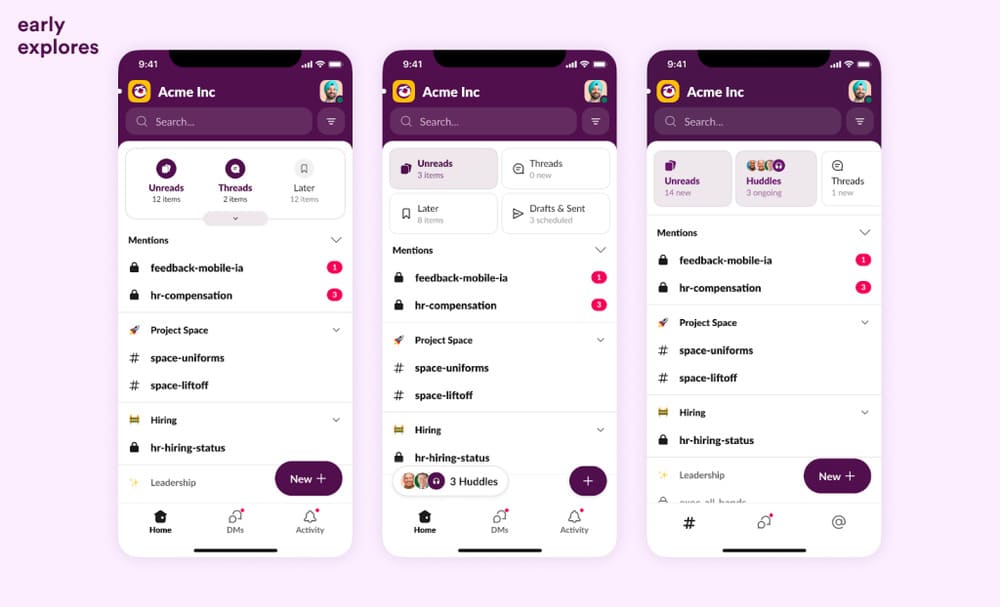Being an entrepreneur comes with many challenges, from managing day-to-day tasks to overseeing long-term goals. Thankfully, the digital age has brought a wealth of tools and applications designed to make running a business more efficient and streamlined. Whether you’re managing a small startup or a growing company, certain apps can help you stay organized, communicate effectively, and make data-driven decisions. In this blog, we’ll explore the essential apps every entrepreneur should have and how they can transform your business operations.
1. Project Management Apps
Managing multiple projects and tasks is a daily reality for any entrepreneur. Project management apps help you keep everything in one place, so you can track progress, assign tasks, and meet deadlines.
Trello and Asana are two of the most popular project management apps, offering user-friendly interfaces and the ability to collaborate with team members. These platforms allow you to create boards, set deadlines, assign tasks, and even track project stages. Whether you’re managing a remote team or a local office, having a centralized platform to oversee your projects ensures that nothing falls through the cracks.
Monday.com is another great option for businesses that require more customization and integration with other tools. It offers a more detailed overview of tasks, including time tracking and workflow automation.
2. Communication and Collaboration Tools

Effective communication is key to running a successful business, especially if you have remote employees or work with freelancers. Apps like Slack and Microsoft Teams make it easier to communicate with your team, exchange files, and even hold virtual meetings.
Slack is great for creating different channels for different teams or projects, ensuring conversations stay organized. With integrations for other tools like Google Drive, Trello, and Asana, you can streamline communication and manage your workflows in one app.
Microsoft Teams offers a similar experience, with the added benefit of being fully integrated with Microsoft Office tools like Word, Excel, and PowerPoint. This is particularly useful if you use Microsoft’s suite of tools for your business.
3. Financial Management Apps
As an entrepreneur, managing your business’s finances is crucial to ensuring long-term success. Thankfully, there are several apps that help with everything from bookkeeping to invoicing.
QuickBooks is one of the most widely used accounting apps for small businesses. It allows you to track income and expenses, manage payroll, send invoices, and even prepare for tax season. QuickBooks can be integrated with your bank accounts to automatically import transactions, making bookkeeping more efficient.
For those looking for a simpler option, Wave is a free app that offers many of the same features. While it may not have as many advanced tools as QuickBooks, it’s a great option for startups or small businesses with limited financial needs.
If you’re in need of more robust budgeting and cash flow management, Xero is another excellent tool. It’s especially popular for businesses that need to manage large inventories or multiple currencies.
4. Marketing and Social Media Management Apps

Marketing is the lifeblood of any business, but it can also be time-consuming to manage multiple social media platforms and campaigns. That’s where social media management apps come in handy.
Hootsuite and Buffer allow you to manage all your social media accounts from one platform. You can schedule posts, track engagement, and monitor performance across platforms like Facebook, Instagram, Twitter, and LinkedIn. These tools not only save time but also allow you to maintain a consistent presence across all platforms.
For email marketing, Mailchimp is a popular option. It helps you design newsletters, automate email campaigns, and track performance, giving you the data you need to improve your marketing strategy. Whether you’re promoting a new product or nurturing leads, Mailchimp makes it easier to manage your email marketing efforts.
5. Customer Relationship Management (CRM) Apps

Managing customer relationships is critical to maintaining a growing business. CRM apps help entrepreneurs keep track of customer interactions, manage sales pipelines, and organize customer data.
HubSpot is a popular CRM tool that offers a range of features, including email marketing, lead tracking, and customer service. It’s particularly useful for businesses looking to integrate their sales and marketing efforts in one place. HubSpot’s free version offers a lot of functionality, while its paid versions offer even more advanced tools for growing businesses.
Another great CRM tool is Salesforce, which is known for its robust features. While it’s more expensive, Salesforce offers extensive customization options and integrations, making it ideal for larger businesses with complex sales processes.
6. Cloud Storage and File Sharing Apps
As a business owner, you’ll likely need to access important files and documents from various devices. Cloud storage apps allow you to store, share, and access files securely from anywhere.
Google Drive and Dropbox are two of the most widely used cloud storage apps. Both offer free and paid versions, depending on your storage needs. Google Drive is especially useful if you use Google Workspace (formerly G Suite) for business email, document collaboration, and spreadsheets.
Dropbox, on the other hand, is a great option for storing and sharing large files. It’s commonly used by businesses that need to share high-resolution images, videos, or other large media files.
7. Task Management and To-Do List Apps
Staying on top of daily tasks can be a challenge when you’re managing multiple aspects of a business. That’s where task management apps come in handy.
Todoist and Microsoft To-Do are simple yet effective tools for keeping track of daily to-do lists. These apps allow you to organize tasks by priority, set reminders, and even assign tasks to team members. By having a clear overview of what needs to be done each day, you’ll stay productive and organized.
8. E-commerce and Payment Apps
If you’re running an online business, having the right tools for e-commerce and payments is crucial. Shopify is one of the most popular platforms for setting up an online store. It allows you to manage your inventory, process orders, and accept payments, all from one dashboard.
For accepting payments, PayPal and Square are reliable options. Both platforms allow you to accept credit card payments, send invoices, and track your transactions. PayPal is particularly useful for international transactions, while Square is often used for in-person payments and point-of-sale systems.
Entrepreneurship is full of challenges, but with the right apps, you can manage your business more effectively and stay organized. From project management and financial tools to marketing and communication apps, each of these platforms plays a vital role in keeping your business running smoothly.
However, while using these apps is essential, having a strong digital presence is equally important. Building your own website allows you to establish personal branding, improve your online visibility, and connect directly with your audience. If you’re looking to create a professional website or need help with digital marketing, Noethera Studio is here to help. Contact us today to see how we can support your business with expert web development and marketing strategies.







